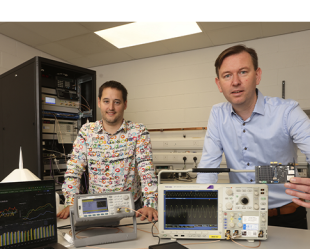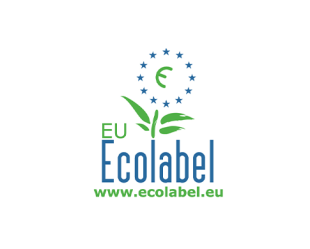Download the NSAI Annual Report 2014
NSAI Annual Report 2014 English version
NSAI Tuarascáil Bhliantúil 2014 Irish version
- Over 7000 motor vehicle approvals granted by NSAI – 15% increase
- 393 petrol stations (7%) issued with warnings following NSAI inspections
- New energy efficiency standard developed by NSAI potentially saving firms millions
NSAI has reported a significant increase in the number of motor vehicle approvals granted during the past year, with 7,559 issued. That’s almost a thousand (or 15%) more than in 2013.
It’s just one of the findings contained in NSAI’s annual report for 2014, published today.
NSAI issued 4,665 national and 2,894 European automotive approvals for vehicles, their components and systems in 2014, focusing on issues such as emissions, engine power, tyres and seat belts. CEO of NSAI, Maurice Buckley said the rise occurred as EU regulations introduced in 2009, entered its final phase last year.
“NSAI is the Irish approval authority for the EU’s Whole Vehicle Type-Approval Scheme. Under this scheme a manufacturer can obtain approval for a vehicle type in one EU country and market it EU-wide without further tests. The scheme was extended in 2014 to include type approvals for Heavy Commercial Vehicles. This, coupled with a hike in vehicle sales, is likely to have contributed to the increase and the figures are continuing to grow in 2015.”
Mr Buckley continued, “The recent Volkswagen emissions scandal in the US has raised questions about this EU Directive and how well the European system works. The Volkswagen controversy represents a serious breach of consumer trust and should be fully investigated to clarify the position within the European Market. NSAI is monitoring the European situation and would support and encourage any improved and enhanced testing regime to ensure we can all be confident in relying on the technical data published.”
Throughout 2014, NSAI’s Legal Metrology inspectors conducted 5,659 site visits to businesses, testing 15,032 instruments, from alcohol or liquor dispensers to scales for retail and points of sale.
2014 saw a sharp rise in compliance rates among petrol stations. Of the 5,941 petrol/diesel pumps tested by NSAI Legal Metrology inspectors to ensure they were calibrated correctly, just 393 failed (7%).
“NSAI’s inspectors not only protect consumers, they also look out for traders as well,” said Head of NSAI’s Legal Metrology Division, Paul Turner. “We have had instances where petrol pumps can over-dispense. Ensuring petrol pump instruments are tested on an annual basis, not only increases consumer confidence, but also can potentially save business owners thousands of euros in lost petrol/diesel,” Mr. Turner added.
Investigations of taximeters by NSAI’s Legal Metrology Division on 2,130 vehicles in 2014 resulted in the body issuing 653 warnings to drivers (31%). To improve compliance in the sector, Legal Metrology has worked very closely with the National Transport Authority throughout 2014. A change to the National Transport Authority’s regulations in 2014 means it is now a legal requirement to have the taxi meter verified at the time of license renewal. This regulation change has led to increased compliance within the sector.
Some of the reasons for failures include the petrol/diesel pumps or taximeters had recently been repaired, altered or adjusted, or the seals were broken or damaged. NSAI inspectors issued warnings to the businesses affected, specifying that the issue be rectified within a certain time frame.
NSAI developed and launched a new standard in Energy Efficient Design Management in 2014, the first of its kind worldwide, reinforcing Ireland’s position as a global leader in energy efficiency standards.
This standard aims to help businesses minimise energy consumption and make significant savings. Diageo, Eli Lilly, GSK, Astellas, and Pfizer have all implemented this design process potentially saving tens of millions of euro in energy costs.
Commenting on NSAI’s annual report, Minister for Business and Employment Ged Nash TD said:
“Standards affect every part of our lives, but most of the time we don’t even notice them. Most of the goods and services we buy are designed, tested and measured against rigorous standards to ensure that we can have confidence in the products we use. To remain competitive, Irish businesses must operate to the highest standards – those who buy Irish products and services not only within our domestic market but also in Europe and internationally expect nothing less. Increasingly, certification to standards is becoming the expected norm for international trade and for inward investment.”
NSAI Annual Report 2014 – Main Findings
- 7,559 motor vehicle approvals granted by NSAI to manufacturers
- NSAI investigated 128 consumer complaints of inaccurate weights and measurements
- 31% of taximeters tested failed inspections (69% were compliant)
- 21% of weighing scales in shops tested by NSAI inspectors failed (79% were compliant)
- 7% of liquid fuel dispensers (petrol/diesel pumps) tested failed (93% were compliant)
- 545 construction related audits were conducted in areas such as external wall insulation systems, window energy ratings, product certifications, air tightness and cavity bead insulation. All 545 were found to be compliant to the standards.
- 3,429 audit days were conducted at medical device firms, with 17 unannounced.
- NSAI published a total of 1,450 European and Irish standards in 2014 contributing to a library in excess of 23,000.
- Among the new Irish standards published in 2014 were standards for domestic gas installations, the remote monitoring of CCTV systems and a code of practice for the energy efficient retrofit of existing dwellings.
PR details
CEO of the National Standards Authority of Ireland Maurice Buckley is available for interviews.
For media queries please contact NSAI Press Officer Sinéad O’Donnell: 085 131 7677
Email: sinead.odonnell@nsai.ie



